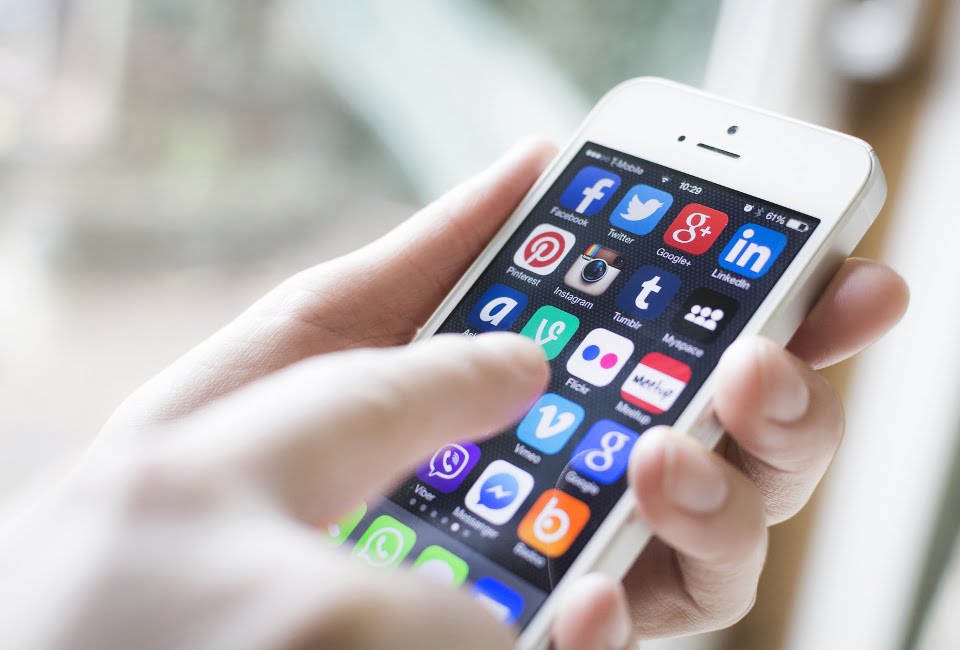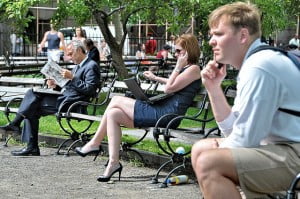Among the many things people cherish is their privacy. “Privacy is not something that I’m merely entitled to, it’s an absolute prerequisite,” actor Marlon Brando once said. Of course, he said it long before smartphones, GPS and social networks came into existence. These days, privacy is indeed a valuable commodity.
In our information-saturated technological world, it is often hard to separate the public from the personal. How, when, and where do we choose to share information about ourselves? How do we perceive public space and virtual space? And how do these perceptions influence our practices of seeing and being seen?
SEE ALSO: Can Hackers Stalk You On Google’s Popular Navigation App Waze?
A recent Tel Aviv University study published in the journal Urban Studies maintains that “dynamic visibility” – in which technological surveillance is combined with personal information volunteered by individuals online – has led to diminished overall privacy. In other words, your location-enabled smartphone erodes your personal privacy in more ways than you think.
“Technology is not only used top-down but also bottom-up, with individuals using their own technological devices to share and enhance their visibility in space,” TAU’s Dr. Tali Hatuka, who led the study, said in a statement. “Whenever we use ‘location-aware’ devices, or tap on Waze or dating apps like Tinder, or check in on Facebook, we are really diminishing our own privacy. This combination of secret surveillance and voluntary sharing contributes to a sense of ‘being exposed’ in a public space that normalizes practices of sharing personal data by individuals. The result is diminished overall privacy.”
Overwhelming willingness to share location on social networks
A survey conducted in 2013 by Google and Ipsos MediaCT in dozens of countries found that the Israeli population had the world’s highest smartphone saturation (57 percent) and some of the highest rates of mobile internet usage and mobile email usage. The new TAU study found some differences among sharing preferences in different types of spaces, but these paled in comparison to the overwhelming willingness of participants to share their locations on social networks.
Sign up for our free weekly newsletter
SubscribeSEE ALSO: Israeli Company Tracks Your Online Behavior To Protect Your Privacy
The researchers developed an Android application called Smart-Spaces to collect information for the study. The app combines smartphone-based surveys with the online tracking of locations and phone application usage. The Smart-Spaces application was installed for 20 days on the phones of TAU students, who answered context-based surveys in the course of their daily routines. Each participant was interviewed before and after the installation of the app.
“More than 73 percent of the participants shared their locations as they answered the surveys,” Hatuka says. “Moreover, there was a correlation between the kind of space they were in — private home, library, street, square etc. — and their willingness to provide information, with a higher willingness to share location and other information when the subject was in public spaces.”
The results were analyzed according to different activities, locations and number of people present at the time.
The researchers are continuing to study the link between smartphones, urban space and social behavior to develop a comprehensive picture of current practices and produce concrete suggestions on how to approach emerging challenges.
Hatuka co-authored the study with Dr. Eran Toch, co-director of the Interacting with Technology Lab of the Department of Industrial Engineering at TAU’s The Iby and Aladar Fleischman Faculty of Engineering.
Related posts

Editors’ & Readers’ Choice: 10 Favorite NoCamels Articles

Forward Facing: What Does The Future Hold For Israeli High-Tech?

Impact Innovation: Israeli Startups That Could Shape Our Future






Facebook comments